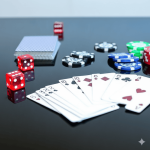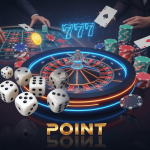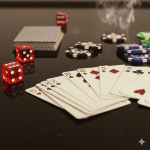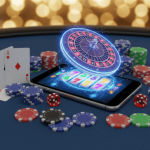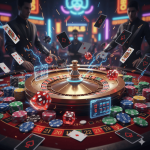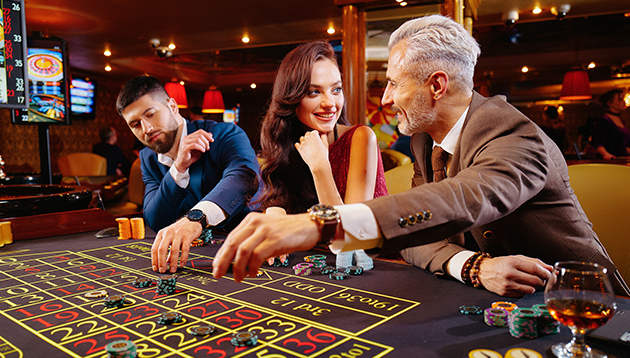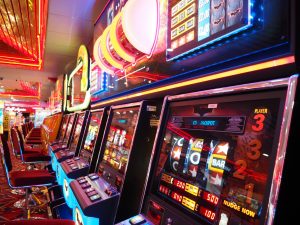In the sleek, glowing digital halls of online platforms like Stake casino, players across the globe click, spin, bet, and win (or lose) at all hours. For many, gambling is a thrilling form of entertainment. But for others, it raises a profound question – can we gamble without leaving a trace on the psyche?
What if a player could place bets, chase jackpots, or enjoy hours at a roulette table and emerge completely unaffected – no excitement, no regret, no lingering thoughts? Could gambling ever be treated like watching a neutral documentary, entirely separate from emotion and identity?
In this article, we’ll explore whether “gambling without consequences” is truly possible. We’ll delve into neuroscience, behavioral psychology, and emotional processing to unpack whether a game can ever be purely a game – or if every spin and wager, no matter how small, leaves a mark.
The Nature of Gambling: More Than a Game
Why Gambling Isn’t Just Clicking Buttons
On the surface, gambling appears simple: make a decision, receive an outcome. But beneath this simplicity lies a rich world of emotion, memory, and psychology. Each time you click “bet” at casino, your brain engages a complex network of cognitive processes and emotional responses. You’re not just clicking; you’re hoping, predicting, imagining.
The Stakes Are Psychological – Not Just Financial
Even in free play or low-stakes betting, players experience heightened emotional states. Anticipation, frustration, relief, elation – these feelings leave neural imprints. Whether you win $10 or $10,000, the emotional rush and subsequent memory formation are part of the gambling experience. So even when no significant financial risk exists, emotional consequences still unfold.
Neuroscience 101: How Gambling Affects the Brain
The Dopamine Loop
Dopamine, the brain’s reward chemical, is central to gambling’s psychological impact. But contrary to popular belief, dopamine isn’t released when you win – it’s released in anticipation of a win. That “what if?” moment right before the result causes a dopamine surge, reinforcing the behavior regardless of the outcome.
This anticipation-reward loop is difficult for the brain to ignore. Even if you try to “treat it like a game,” your neurochemistry is still engaged. This feedback loop contributes to habit formation and, in extreme cases, addictive behavior.
Risk and Reward Centers
Every gamble activates the brain’s risk assessment systems – specifically the prefrontal cortex (which handles decision-making) and the amygdala (which processes emotion). When these systems are engaged repeatedly, they reshape how we think, feel, and act – not just in casinos, but in broader life decisions.
Even in moderate or “recreational” play at casino, players develop emotional and neurological habits tied to betting. Whether or not they’re aware, the brain is adapting.
Emotional Echoes: The Lingering Effects of a Bet
Wins and Their Afterglow
A win, no matter how small, is rarely forgotten. The rush of serotonin and dopamine reinforces the behavior and imprints the memory. Days or even weeks later, players may recall how a specific win “felt,” even if they can’t recall other events from that day.
That emotional echo motivates return play. It can even subconsciously affect mood, self-esteem, or confidence levels in other parts of life. Wins are rewarding, but they’re also psychologically sticky.
Losses and Emotional Suppression
Ironically, while wins are celebrated, losses often go emotionally unprocessed. Players may deny, minimize, or rationalize them – “it was just bad luck” or “I was due for one.” This emotional suppression still leaves a trace, often surfacing later as regret, tension, or cognitive dissonance.
Even if a loss is brushed off as “just a game,” the brain remembers the emotional weight, particularly if the loss felt unjust, close, or surprising.
The Illusion of Control and Its Psychological Toll
Feeling in Charge, Even When You Aren’t
Many gambling games – especially slots, card games, and sports betting – create the illusion of control. Players choose bet amounts, timing, or strategies, which makes outcomes feel more personal. This perception deepens emotional investment and reinforces engagement.
Even when using auto-spin or randomized options at casino, players often feel they’re influencing outcomes. That illusion, while satisfying, ties performance to personal responsibility. So when things go wrong, the player may feel disappointment, self-blame, or irrational guilt.
Superstition and Mental Rituals
The more a player repeats gambling behaviors, the more they develop mental shortcuts or rituals – choosing “lucky numbers,” betting only at certain times, or wearing specific clothes while playing. These habits reinforce emotional engagement and form associations that shape mood, expectation, and behavior.
Each of these rituals is a psychological anchor. And anchors, by definition, leave a trace.
Is It Possible to Play Without Emotional Consequence?
The Case for Emotional Detachment
Some argue that if you gamble purely for entertainment – with strict limits and no expectation of winning – you can walk away unaffected. In this framework, gambling is no different than playing a video game or watching a suspenseful movie. The key is awareness and intentionality.
Casino often encourage this mindset with responsible gambling tools: setting time or spending limits, using “reality checks,” and emphasizing entertainment over profit. If players fully adopt this approach, emotional neutrality becomes possible – at least in theory.
The Limits of Human Emotion
But even with awareness, humans are not machines. Our brains are wired to respond to risk, reward, and anticipation. We form attachments to outcomes, even when we try not to. So while a player might say, “I don’t care if I win or lose,” their nervous system may still react.
The physiological traces – heart rate spikes, dopamine bursts, pupil dilation – don’t disappear simply because we decide they shouldn’t. In that sense, total emotional detachment may be aspirational rather than achievable.
Digital Design and Subtle Influence
Gamification and Engagement Loops
Online casinos are carefully designed to maintain engagement. Visual cues, achievement badges, bonus rounds, and leveling systems all mirror video game mechanics, tapping into the brain’s desire for progression and reward.
These gamified systems make it harder to “just play” without psychological impact. Players become invested in milestones, streaks, and unlockables. Even non-monetary rewards (like free spins or loyalty tiers) create emotional hooks that keep players coming back.
The Comfort of Routine
For many players, logging into a casino platform becomes part of a daily routine. This predictability feels safe, comforting, and familiar. But like any habit, it conditions emotional responses over time. Even if gambling feels harmless, it’s shaping mood, behavior, and even identity.
Gambling vs. Other Leisure Activities
Why Gambling Hits Differently
Watching TV, reading, or even playing video games often involve some emotional investment. But gambling adds one critical element: uncertainty tied to personal value. Whether it’s money or pride, every bet feels personal. The outcome matters – not just for the wallet, but for how the player feels about themselves.
Even if the stakes are small, that personal attachment sets gambling apart from other activities. That’s why a single spin can stay with you longer than an entire Netflix season.
The Edge of Real Risk
True leisure activities lack tangible risk. There’s no “loss” when you lose a game of chess or don’t finish a book. But gambling, even in demo or low-stake formats, mimics real-world stakes. It creates tension and consequence – emotional or financial – even when logic says otherwise.
This edge makes gambling exhilarating but also ensures that it rarely leaves no trace.
Practical Ways to Reduce Emotional Impact
Set Clear Emotional Boundaries
Before you even log in to casino, set an emotional intention. Ask yourself: Am I here to win, or to play? Am I seeking excitement, or escape? Emotional clarity helps prevent surprise reactions later.
Use Time and Budget Limits
These are more than just financial tools – they’re psychological guardrails. Limits give your brain permission to disengage after a certain point, reducing lingering emotional investment.
Take Post-Session Reflections
After gambling, take 2 minutes to note how you feel. Not just about wins or losses, but about yourself. Are you calm? Excited? Guilty? By becoming aware of emotional responses, you weaken their subconscious power.
The Role of Platforms in Responsible Play
Empowering Conscious Players
Many modern platforms, offers responsible gambling tools designed to empower players – not restrict them. Features like loss limits, session timers, and wagering caps support the ideal of entertainment without emotional baggage.
Encouraging Transparency
Casinos that openly discuss the risks, emotional hooks, and mental traps of gambling are doing more than covering legal ground – they’re shifting the culture. Casino’s transparency helps normalize conversations about the psychological aspects of play.
Conclusion: Every Click Leaves a Trace
So, is it possible to gamble without consequences?
In the strictest sense – perhaps not. Our brains and bodies are designed to respond to uncertainty, reward, and risk. Every bet, every near-miss, every minor win creates a small imprint, shaping our emotions, behavior, and expectations.
But this doesn’t mean gambling must be harmful. With awareness, intention, and the right tools (many of which are available at casino), players can minimize the emotional residue. They can play, enjoy, and disengage – without letting gambling define them.
The goal isn’t to erase all traces – but to ensure that what’s left behind is only the memory of entertainment, not regret.
